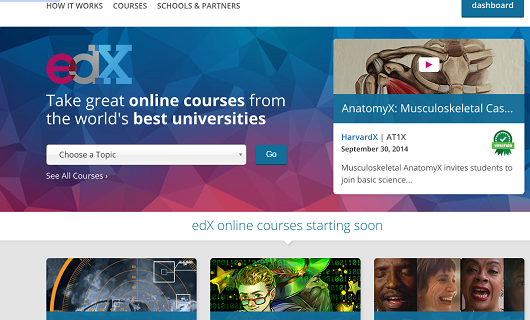By Nabila Rubaiyat
With inclusion of ICT as a compulsory subject in the National Curriculum and Textbook Board (NCTB) Bangladeshi students of this decade are familiar with the terms ‘distance learning’ or ‘e-learning’. Many Bangladeshis are taking part in this revolution as we write. Then again there are those who are not quite acquainted with this newly introduced mode of learning. Simply put, one would require a net connection and sometimes a few additional hardware (i.e. webcams, headphones) to assist the set-up and enhance the learning experience. Good news for law students is that there are a good number of law-related courses available online imparting legal educations, which are beneficial for them in becoming a professional. On top of that, if a student studying law finds his courses mundane or a particular lecturer tough to comprehend, he might want to retreat to an alternative solution like this.
Benefits..
In today’s world, distance learning is a trending mode of diversified learning that infuses technology with education, thus enlightening and reaching out to people of different demography, ethnic communities, socioeconomic backgrounds and age categories in the process. Thanks to e-learning students are having access to various study materials, library facilities and lectures by experienced faculty members from reputed universities all over the world, including leading universities like Harvard and MIT.
If you are puzzled, we feel for you because….
A few questions that may arise in a law student’s mind would be – Which websites offer these courses? Are they free? How effective are these? Are they open for all? Keep on reading to find out!
The whys and hows….
All though there are low-cost options, we restrict our writing to free study contents only. However, these courses are merely supplementary in nature and not to be replaced with live classroom sessions. But since you can access illustrated lectures by world class lecturers, surely it is a complimentary opportunity where you have the option to compare how the same topics you learn are taught at different foreign law schools.
Ever heard of Coursera?
Well, Coursera is a website where all its courses are absolutely ‘free of cost’. If you wish to obtain a verified certificate by having your assignments/quiz papers graded by the university, a minimum amount of $50 has to be chipped in, but you may enroll in these courses regardless of certification/credits.
Some of the Law courses offered by Coursera :
- ‘Surveillance Law’ offered by Stanford University,
- ‘A Law Student’s Toolkit’ by Yale University, (Did you know U.S. President Gerald Ford and Bill Clinton attended Yale?)
- ‘Introduction to International Criminal Law’ by Case Western Reserve University,
- ‘Introduction to Environmental Law and Policy’ by The University of North Carolina at Chapel Hill,
- ‘English Common Law: Structure and Principles’ by University of London,
- ‘Property and Liability: An Introduction to Law and Economics’ by Wesleyan University,
- ‘International Law in Action: A Guide to the International Courts and Tribunals in The Hague’ by Universiteit of Leiden and many more.
These courses are designed in a way where the entire course is divided into smaller segments each having an allotted duration of completion time (recommended, but not mandatory). Click to explore more – Coursera
Then how about edX?
edX with its wide array of accredited law courses (optional) to choose from. It follows the same course outlines as Coursera, where 4-8 hours of effort have to be given per week, and the course durations are usually within 3-10 weeks. Self paced options are sometimes available.

Notable edX courses include:
- ‘Contract Law: From Trust to Promise to Contract’ offered by Harvard University,
- ‘International Law’, ‘International Human Rights’ both by Université catholique de Louvain,
- ‘The EU and Human Rights’ by course instructors from EU countries like Spain, Austria, France, Italy, etc.,
- ‘Intellectual Property Law and Policy’ by University of Pennsylvania (concerning IP, patent laws, copyright, trademark laws etc.)
Normally no prerequisites are needed to get enrolled, but prior knowledge about specific topics can be handy in understanding certain notions. EdX being non-profit relies on verified certificates to help fund free education for everyone globally. Click here to explore more – edX
Other than these two amazing sites, there are learning platforms like Udemy, Future Learn, Alison, Academic Earth whose course works are just as exciting and diverse. Besides accredited learning, universities patron individual initiatives for non credited learning, meaning you will not get certificates, purely self directed in nature. For example,
- MIT has free courses like ‘Ethics and the Law on Electronic Frontier’, ‘Law and Society’, ‘Philosophy of Law’.
- The Open University also offers ‘Privacy Rights and the Law’, ‘Company Law in Context’,
- UoC at Berkeley has courses like ‘Aims and Limits of the Criminal Law’, ‘Environmental Policy Prospective’ etc.,
- UoC at Irvine provides ‘Theory and Method in Legal History’,
- University of Michigan offers ‘Intellectual Property and Information Law’ etc.
This would all be very helpful for a law student studying in Bangladesh. And now we would conclude with notes on time management, as to how to fight the procrastination.
How to gather inspirations……. the most important and difficult part
If you are a law student wanting to excel in class, then you may want to achieve that at the expense of cutting off a few hours of hanging out with friends on a regular basis and utilize time for the greater good. It will surely lead you to a guided path, especially for those thriving for excellence in their academics, and understanding things from a very basic level. Now we may sound over enthusiastic about it, but reality speaks otherwise. Aim BIG! Weekends and holidays may feel more fruitful if you plan wisely.

Some other benefits include- you having an extra edge over your peers, and being more interactive at class by coming up with different angles of thinking, developing your interrogating, analyzing and interpretation skills. The choice is entirely YOURS! Because if you feel it is too many things for you to handle, then probably you should stick to your academic learning only. Ultimately it all comes down to personal choice, consistency, will power and areas of interest. If you can take the heat then surely it is fit to say that the distance between, which was presumably a set-back in the past, is now making the globe into an inter-connected global village, that too, through computer screens!
—————————————–
Nabila Rubaiyat is a student of LL.B at University of Dhaka; She can be reached at nabila.r@hotmail.com



